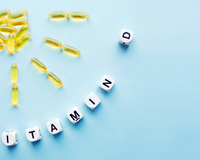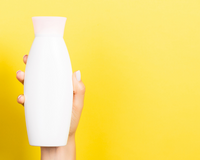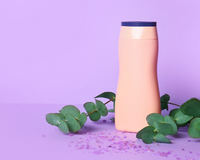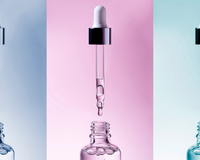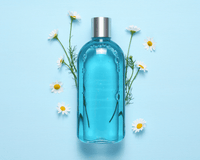Best Sulfate Free Hair Care Products
In the past few years, sulfate-free shampoos have become very popular because beauty experts love how gentle they are and how they don't harm the environment. You can find dozens of sulfate-free shampoos that claim to be better for your hair than regular shampoos in any beauty aisle. But is it true that shampoos without sulfates are better for you? We'll talk about the pros and cons of best sulfate free hair care products.
Surfactants, which are chemicals that attract both oil and water, like sulfates, are used to make lather and make it easy to wash away dirt and grime. They are in many personal care products like body wash, shampoo, facial cleansers, and toothpaste, as well as cleaning products for the home.
Why Should You Choose The Best Sulfate Free Hair Care Products?
Shampoos with sulfates are made to clean both the hair and the scalp. When mixed with water, sulfates make it easy to remove dirt and dead skin cells from your hair and scalp. Sulfates create the "soapy" texture that many people want when they wash their hair. When you use sulfate shampoos, the suds make it easier to clean your scalp because you don't have to scrub as hard.
There are two main types of sulfates in shampoos:
- Sodium lauryl sulfate (SLS): This helps shampoos make thick foam that is easy to rinse off. It's often in shampoos that are made for oily hair.
- Sodium laureth sulfate (SLES): These types of detergents can help hair that is normal to dry because they clean and foam.
Why do some people worry about sulfates in shampoo and other hair products? There has been a lot of talk about sulfate products lately, and some people are worried about how they might hurt our health and the environment.
Are Sulfate Free Hair Care Products Safe?
Even though sulfates are generally safe, they can irritate the skin, especially in people with sensitive skin. Researchers in Germany looked at 1,600 people to see if they had an irritant reaction to SLS. They found that 42% of the people had an irritant reaction.
SLS has even been used in dermatological testing as a "positive control." This means that new products are compared to SLS to see how much they irritate the skin. The American Academy of Dermatology says that people with rosacea, eczema, or dermatitis should use shampoos without sulfates to keep their skin from getting irritated.
What Does Sulfate Do To Your Hair?
If you are exposed to too many sulfates, the protein in your hair could break down. A 2005 study found that hair that is soaked in a sodium dodecyl sulfate solution loses twice as much protein as hair that is soaked in water.
Because sulfate shampoos are so good at cleaning, they may take a lot of the natural oil out of hair, leaving it dry and brittle. Concerns have been raised about how sulfate shampoo affects the environment. Many shampoo companies get sulfates from palm oil, which is often made by cutting down trees and destroying natural habitats.
Some evidence also shows that SLS could be bad for aquatic life. But since SLS is diluted in products, this is probably not the case. Some unproven claims have been made in the past that sulfates, especially SLS, could cause cancer. Sulfates are not known to cause cancer, and there is no evidence that sulfates cause cancer.
Who Can Use Sulfate Free Hair Care Products?
If you use sulfate shampoos too much, they can damage your hair and make it dry and rough. If you just had your hair colored or chemically treated, or if your hair is naturally dry or coarse, you might want to try a shampoo without sulfates to see if it makes your hair healthier.
So, if you have sensitive skin or a skin condition like rosacea, you might want to stay away from shampoos with sulfates. Sulfates can be rough on the scalp and cause itching and irritation. Most shampoos that don't have sulfates are much gentler.
Some people may not like that sulfate-free shampoo doesn't make "suds" when they wash their hair. This can make people think that their hair isn't clean enough. But you don't need suds to clean your hair. Some people say that sulfate-free shampoos leave their hair greasy. Mild cleansers like decyl glucoside or coco glucoside are used in sulfate-free shampoos. So they don't always clean hair well enough to get rid of buildup.
Are Sulfate Free Hair Care Products Worth It?
Shampoos without sulfates tend to cost more. If you have sensitive skin, thin hair, or hair that has been dyed, it may be worth it to pay more for a sulfate-free option to avoid damage.
If you're on a tight budget, you might want to make your own shampoo at home with natural ingredients like honey and diluted apple cider vinegar. You can also look for African black soap, which can be used both as a shampoo and a body wash.
Shampoos with sulfates don't have the best reputation because of how they're made and rumors that they can cause cancer. However, the biggest problem with shampoos with sulfates is that they might irritate your skin. If you have a sensitive or irritated scalp, try switching to shampoos without sulfates to calm it down. If using shampoos with sulfates doesn't bother you, there's no reason to switch for your health.
Should Curly Haired People Use Sulfate Free Hair Care Products?
If you run your fingers down the length of your hair and it feels dry and rough instead of smooth and soft, you probably have coarse hair. This type of hair can also benefit from shampoo without sulfate. Since a shampoo without sulfate won't strip all the moisture out of your hair. The natural oils on your head can hydrate your hair as they move down.
Co-washing is another way to clean your hair besides using shampoo without sulfate. This is when you use both shampoo and conditioner to clean your hair. Cleansing conditioners clean the hair gently while deeply conditioning it to stop frizz.
Should You Use Sulfate Free Hair Care Products If You Have Damaged Hair?
If so, don't use shampoos that contain sulfates. On the other hand, if your hair is weak or damaged, a shampoo without sulfates will be gentle enough not to make things worse. This means that you can keep whatever moisture is left on your hair. After shampooing, you can make your hair stronger by using products that bring protein to the core of your hair.


